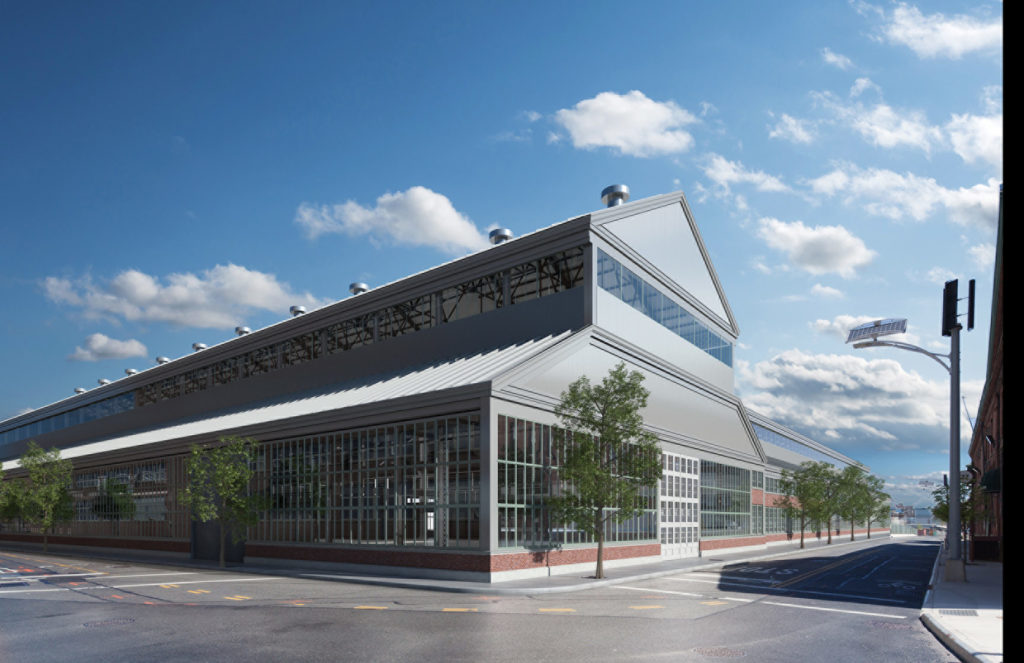What are we even talking about when we talk about “Brooklyn tech”?
“I don’t know what Brooklyn tech is anymore,” said Brooklyn Law School’s Jonathan Askin, seated around a table of Brooklyn tech sector leaders at Technical.ly Brooklyn’s twice-annual stakeholder meeting, held at CARTO’s Bushwick office last month. “I don’t know if anyone specifically considers themselves ‘Brooklyn tech.'”
And yet, when we asked that table of Brooklyn leaders if they’d use the term to describe themselves, they responded in ambivalent murmurs and nods, as if to say, “Yeah, that doesn’t sound wrong.”
In that way, the term “Brooklyn tech” feels fraught with contradiction. Confusion. (There is, of course, the high school of the same name.) Apathy, even. Does it matter?
“When it comes to tech,” said Imagination in Space’s Greg Spielberg, “I mean…” He paused and let out a big sigh, going on to explain that in his work with NYCEDC’s Next Top Makers incubator, he serves startups in any way they need. “We don’t prioritize [tech] top down,” he said.
Sitting around that table, it almost felt like a collective fatigue with the identifier of “tech.” After all, tech touches everything these days, and in a place like Brooklyn, where, as NYU Game Center professor Matt Parker put it, “tech is big enough that there now are segments of tech,” maybe the term just doesn’t carry weight. Maybe it’s not as useful or necessary as it would be in a place where people are yearning to align themselves with a tech community.
That notion felt especially relevant when we asked the table where they’d send people who were looking to get immersed in the local tech scene. The usual suspects, sure, like meetups, the NYC Media Lab newsletter and the NYC ACRE newsletter. But Varun Adibhatla, director of the Navy Yard’s New Lab Urban Tech Hub, threw folks for a loop when he mentioned Punderdome, a competition for puns held at Gowanus’ Littlefield.
“I was a nerd and we like our puns,” he said.
But for serious, he said he ran into a handful of Brooklyn software engineers at the event, suggesting that the best place to meet tech people might be non-tech spaces.
Joseph Shahadi, who runs TV channel Brooklyn On Demand and The Art of Brooklyn Film Festival, said that location may be the truer unifying detail, not industry.
“I wonder if ‘Brooklyn’ is more important than ‘tech’ in that ‘Brooklyn tech’ phrase,” he said. There is a specialness, he said, to anything that’s happening within the borough and people seem to understand this. “If something is happening here, then it’s happening here.”
There was much talk of the Navy Yard being a new center of gravity for the tech scene, with its 84,000-square-foot New Lab coworking space for hardware companies, the forthcoming 1776 incubator and a flashy new WeWork location. But Erika Harris, who runs innovation and entrepreneurship programs for the cleantech-focused NECEC, wondered what would become of the people who live there as the area continued to develop.
“How many people are going to get displaced as successful as the companies in the Navy Yard companies are?” she asked, adding that since Brooklyn tech is still in its early stages, there’s a lot of opportunity to shape how the tech sector affects the borough.
Justin Hendrix, executive director of the NYC Media Lab, echoed Harris, saying that what he liked about Brooklyn tech was that “there’s a stated interest in trying to do it differently than what we’ve seen happen in the Bay Area.”
“It’s still an open question,” he said, “whether Brooklyn’s tech emergence is to the benefit of the whole borough.”
But if the Brooklyn tech community isn’t organized, through a common name or otherwise, can it get anything done?
Before you go...
Please consider supporting Technical.ly to keep our independent journalism strong. Unlike most business-focused media outlets, we don’t have a paywall. Instead, we count on your personal and organizational support.
Join our growing Slack community
Join 5,000 tech professionals and entrepreneurs in our community Slack today!

